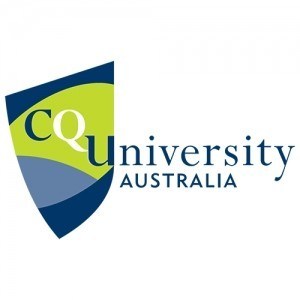Photos of university / #rmituniversity
The Bachelor of Health Science (Osteopathy) at RMIT University is a comprehensive undergraduate program designed to prepare students for a career in osteopathic practice, combining rigorous academic coursework with practical clinical training. This program offers students a thorough understanding of human biology, anatomy, physiology, and the principles underlying osteopathic treatment. Throughout the course, students develop the skills necessary to assess, diagnose, and manage musculoskeletal and related health issues using osteopathic techniques. The curriculum integrates theoretical knowledge with hands-on experience, allowing students to apply learned concepts in real-world clinical settings under supervision. RMIT’s state-of-the-art facilities provide a supportive environment for learning and practicing osteopathic skills. The program emphasizes a holistic approach to health care, encouraging students to consider the physical, psychological, and social factors impacting patient well-being. Graduates of this program will be equipped with the necessary competencies to work as registered osteopaths, contributing to the promotion of health and the management of musculoskeletal conditions in diverse healthcare settings. The program also prepares students for further postgraduate study or research in the health sciences. With a focus on evidence-based practice, professional development, and ethical standards, this degree aims to produce competent, empathetic, and well-rounded health practitioners ready to meet the needs of the communities they serve.
Year 1
You'll learn to demonstrate fundamental techniques, describe the structure and function of the human body and develop diagnostic palpation skills.
You will study anatomy, biochemistry and physiology, as well as clinical sciences in the foundations of osteopathic techniques, and osteopathic principles and palpation for osteopaths.
Year 2
You'll expand your range of techniques, learning musculoskeletal diagnosis and refining your palpation skills. You will also expand your knowledge of anatomy, physiology, microbiology, immunology and genetics, as a foundation for clinical practice.
Year 3
You will focus on formulating working diagnoses, developing your techniques, and studying in-clinic neuro-musculoskeletal patient treatment.
Your studies in clinical sciences will include advanced soft tissue techniques, simulated clinical practicum and tutorials, high velocity/low amplitude techniques, exercise and rehabilitation, nutrition, and osteopathic research.
Years 4 and 5
The final two years have a clinical practice focus. Most training will occur at the RMIT Health Sciences Clinic at University Hill, Bundoora, and via the final-year external placement.
You must have successfully completed an Australian Year 12 (or equivalent senior secondary school qualification) with a minimum 70% average (check calculator below).
Equivalent qualifications may also include completion of the RMIT Foundation Studies program or a recognised post-secondary diploma in the relevant discipline with the required grades.
Meeting the minimum academic requirements does not guarantee entry. Your application will still need to be assessed and accepted.
Working with Children Checks
Students are required to complete a Working with Children Check before going on placement.
The Master of Health Science (Osteopathy) program at RMIT University offers comprehensive information regarding the financing of studies, aiming to assist students in understanding the available options for funding their education. As an institution committed to providing accessible education, RMIT University offers several avenues for financial support, including government loans, scholarships, and payment plans. Domestic students may be eligible to access HELP (Higher Education Loan Program), which allows students to defer the payment of tuition fees until they are financially able. This program significantly reduces the upfront cost of tuition, making it more feasible for students from diverse economic backgrounds to pursue their studies. Eligibility for HELP depends on meeting certain criteria, including citizenship status and enrollment in a Commonwealth supported place.
International students should consider the total cost of their studies, which encompasses tuition fees, health insurance, accommodation, and living expenses, as these are typically paid out-of-pocket or through private loans. RMIT also provides a range of scholarships and grants aimed at supporting students academically and financially. These scholarships may be awarded based on academic merit, financial need, or specific criteria related to the program or student background. Applicants are encouraged to explore the scholarship opportunities early in their application process to maximize their chances of receiving financial aid.
In addition to government and institutional funding, students may seek private loans or financial assistance from external sources. Payment plans are often available, allowing students to split the cost of tuition over multiple installments, easing the financial burden throughout the duration of their studies. It is important for prospective students to consult the RMIT University Financial Assistance Office or the official university website for detailed and current information, as policies and availability of financial support options may change over time. Overall, RMIT University demonstrates a strong commitment to making osteopathy education accessible through various financial support mechanisms, enabling students to focus on their academic and professional development in the health sciences field.
The Bachelor of Health Science (Osteopathy) at the Royal Melbourne Institute of Technology (RMIT) is a comprehensive program designed to prepare students for a professional career in osteopathic practice. This degree provides a thorough grounding in human anatomy, physiology, and the principles of osteopathic treatment, combining academic coursework with practical clinical experience. Students will learn to assess, diagnose, and treat musculoskeletal and other health conditions through hands-on techniques, emphasizing holistic and patient-centered care. The program curriculum includes modules in anatomy, physiology, pathology, biomechanics, and osteopathic technique, along with communication and ethical practice. Students also gain experience in clinical settings through supervised placements, enabling them to develop vital practical skills. RMIT’s facilities include state-of-the-art osteopathic clinics and laboratories, offering students real-world experience in a supportive learning environment. Graduates of this program are equipped to work as registered osteopaths in private practice, multi-disciplinary clinics, or to pursue further postgraduate studies. The program is accredited by relevant professional bodies, ensuring that graduates meet industry standards and requirements for registration. Upon completion, students will possess the necessary skills, knowledge, and clinical competency to contribute effectively to patient health and wellbeing through osteopathic care. The university emphasizes a multidisciplinary approach, combining biomedical sciences with manual therapy techniques and patient management skills, to foster competent and compassionate health practitioners.









